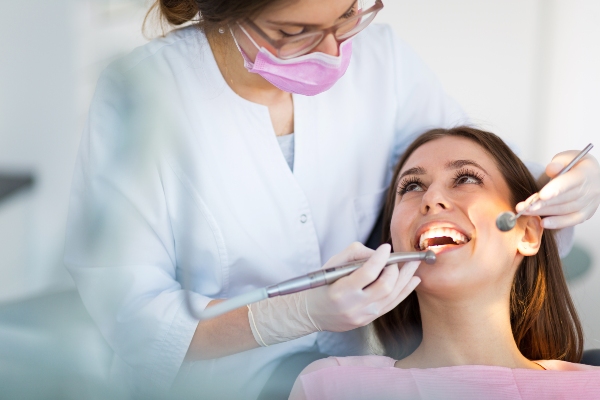When To Visit an Emergency Dentistry Office During the Coronavirus Disease

A knocked-out tooth, broken teeth and severe toothaches are few common conditions that may necessitate a visit to an emergency dentistry office. Since such dental issues do not heal on their own, patients must seek professional treatment immediately, despite the lockdown caused by the coronavirus. It can be hard to discern if a condition is a real emergency. However, with the help of this article, it can be easy to determine when to visit the dentist and what to do when faced with dental trauma.
What counts as a dental emergency?
Due to the coronavirus disease outbreak, the American Dental Association has recommended that dentists postpone all elective procedures and only handle dental emergencies. A dental emergency is an oral health problem that demands immediate treatment from the dentist. Sometimes, the emergency nature of the situation is obvious, such as a broken or knocked-out tooth. Other times, it may be unexplainable pain or bleeding.
Like any emergency, it is necessary to contact a dental professional and get treatment immediately. Failure to treat bleeding, loose or broken teeth or severe toothaches can lead to complications that may require extensive and costly procedures eventually.
Please note that social distancing is critical to curtailing the spread of COVID-19. Also, preventing dental infections is critical to ensure optimal health. Due to complications that are bound to occur from postponing treatment, patients should visit an emergency dentistry practice if they notice swelling, pain or discomfort. Currently, dentists all over the country have been recommended to treat only patients with dental emergencies and postpone all elective procedures.
When to visit an emergency dentistry practice
Lost fillings, broken crowns, mild tooth pain or a broken or lost oral appliance (like a retainer or mouthguard) can be irritating, but they are not actual emergencies. However, they still require dental care, so the dentist should be notified, but an emergency appointment may likely not be necessary.
Major dental emergencies typically include uncontrolled bleeding, debilitating pain or a tooth that is at risk of loss. If the tooth has been knocked out, loosened, cracked or broken, an emergency dentistry appointment is necessary to increase the chances of saving the tooth.
When faced with a dental emergency, it is easy to become frazzled. Usually, calling an emergency dentistry practice is the best thing to do. Most emergency dentistry offices are open all through the week and outside of regular business hours. Before the appointment, the emergency dentist will provide instructions on what to do. It is important to stay calm while waiting for dental care. If there is uncontrolled bleeding or severe and unbearable pain, and the dentist is not immediately available, it is advisable to visit the emergency room.
Final note
Creating a relationship with an emergency dentistry practice can make things easier for when an urgent need arises. Book regular dental checkup and cleaning appointments with the dentist to get started. This will allow patients to get familiar with the dental professionals, which can, in turn, allow them to provide better care if emergency care is ever needed, such as during the COVID-19 lockdown.
Request an appointment here: https://www.healthysmilesgeorgetown.com or call Healthy Smiles Dentistry Georgetown at (512) 864-9010 for an appointment in our Georgetown office.
Check out what others are saying about our services on Yelp: Read our Yelp reviews.
Recent Posts
A cosmetic dentist can help you achieve your dream smile. Getting dental treatments can improve the appearance of your teeth. It may also enhance your dental function and health. Learning more about it can help you prepare for your procedure. Here are the benefits that you can get when you consult a cosmetic dentist.Talking to…
Cosmetic dentistry has become increasingly popular as more people use these procedures to improve their smiles and self-confidence. While this type of dentistry is often associated with purely aesthetic improvements, it can also help address many common dental issues. This article will explore how cosmetic dentistry can help improve your smile and overall oral health.Cosmetic…
For those looking to improve how their smile looks, choosing the right cosmetic dentist is key. Because cosmetic dentistry is not a recognized dental specialty, any dentist can claim to be a cosmetic dentist. Therefore, finding the right professional for you can be a challenge. Fortunately, knowing what qualities to look for takes much of…
TMJ disorder occurs when the temporomandibular joint is injured or overworked. The joint is responsible for connecting the skull and the jawbone, and it plays an important role in the jaw movement. When TMJ disorder develops, symptoms develop and can worsen without appropriate treatment. There are many different symptoms of TMJ disorder, but some TMJ symptoms…


